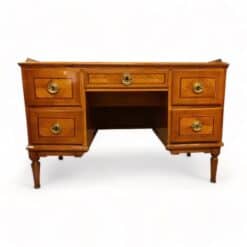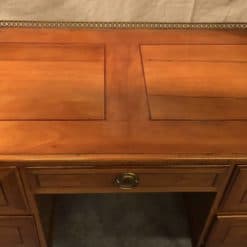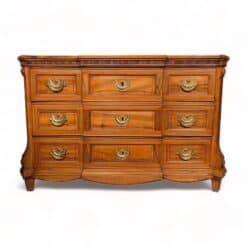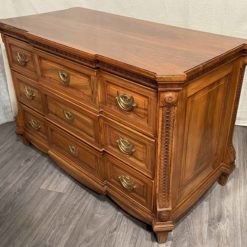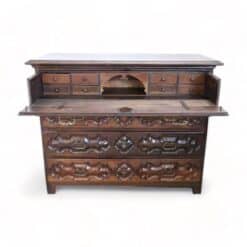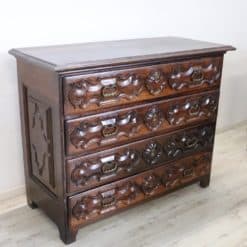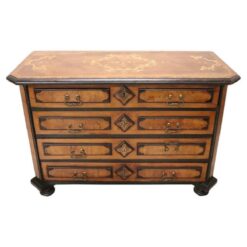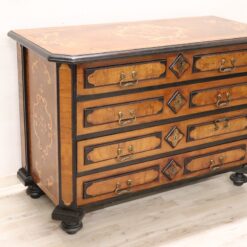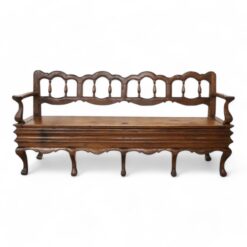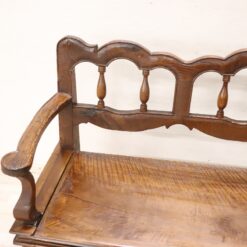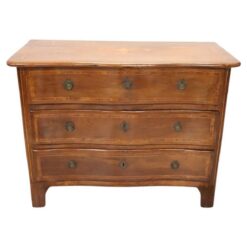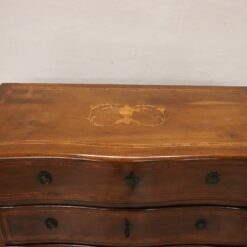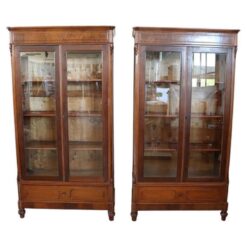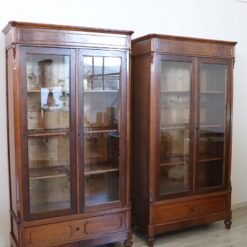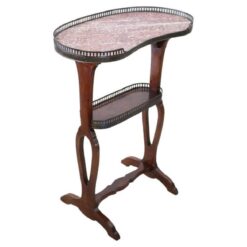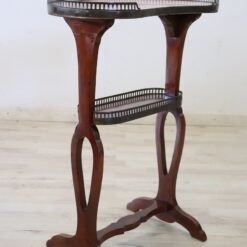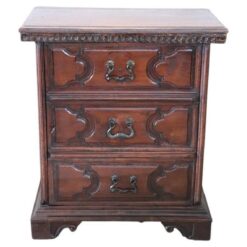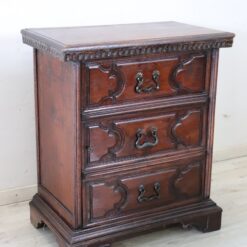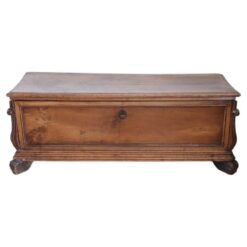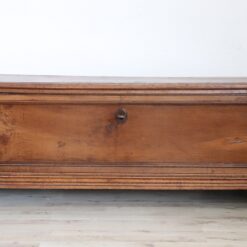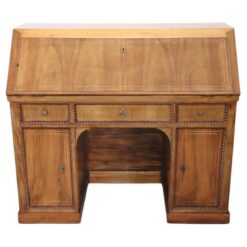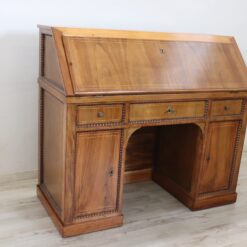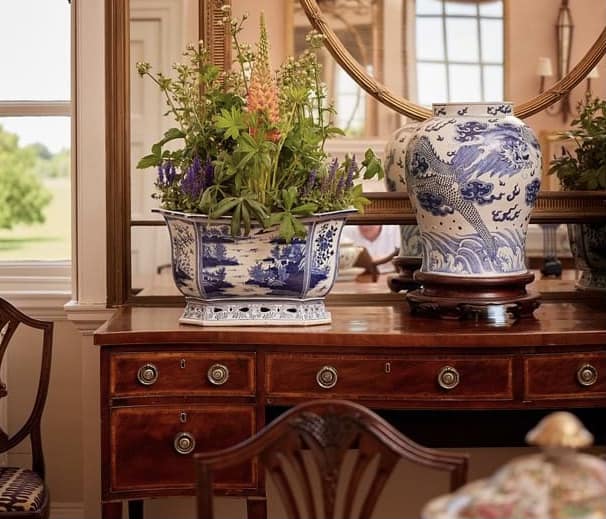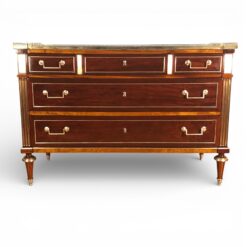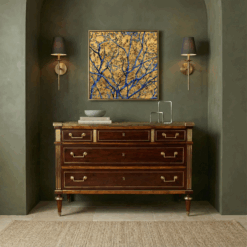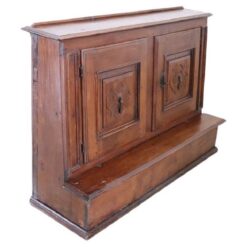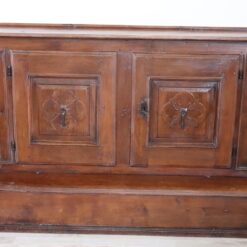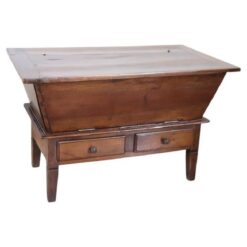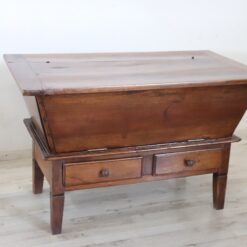Best Sellers
What brings us to discussing sustainability and antiques? In a world where sustainability and environmental consciousness are becoming increasingly important, the choices we make in our daily lives can have a profound impact. Even when decorating, we have the power to reduce our carbon footprint. When it comes to furnishing our homes, buying antique furniture is a brilliant way to marry environmental responsibility with exquisite aesthetic appeal. Join us as we explore buying antiques. Discover which options preserve natural resources and best decorate your home.
Sustainability in 2023: A Growing Imperative
As we step into 2023, sustainability has become an ever more pressing concern. With increasing awareness of the environmental challenges we face, individuals and businesses alike are seeking ways to make a positive impact. The demand for sustainable products and practices has skyrocketed, and the furniture industry is no exception.
In this era of conscious consumption, antique shops emerge as a shining example of sustainable living. By embracing antique pieces, we don’t only reduce waste and carbon emissions but also support the preservation of cultural heritage and the revival of traditional craftsmanship. In 2023, sustainability is not just a trend; it is an essential value that antique furniture embodies.
The Value of Antiques: More than Meets the Eye
When it comes to furniture, value extends far beyond the price tag. Antique and vintage furniture hold a unique allure and offer benefits that go beyond mere aesthetics. Unlike mass-produced furniture, antique and vintage pieces are often made with exceptional craftsmanship and high-quality materials, ensuring durability that stands the test of time.
Consider this 19th Century Italian Antique Cabinet in Solid Carved Walnut. Step into a world of refined elegance with this rare 19th-century Italian cabinet, meticulously crafted from solid walnut. Adorned with hand-carved wood decorations on its front doors, this majestic antique piece exudes vintage charm and boasts a large interior equipped with shelves. The custom-made shelves ensure this cabinet aligns perfectly with your needs, providing both functional storage and aesthetic appeal.
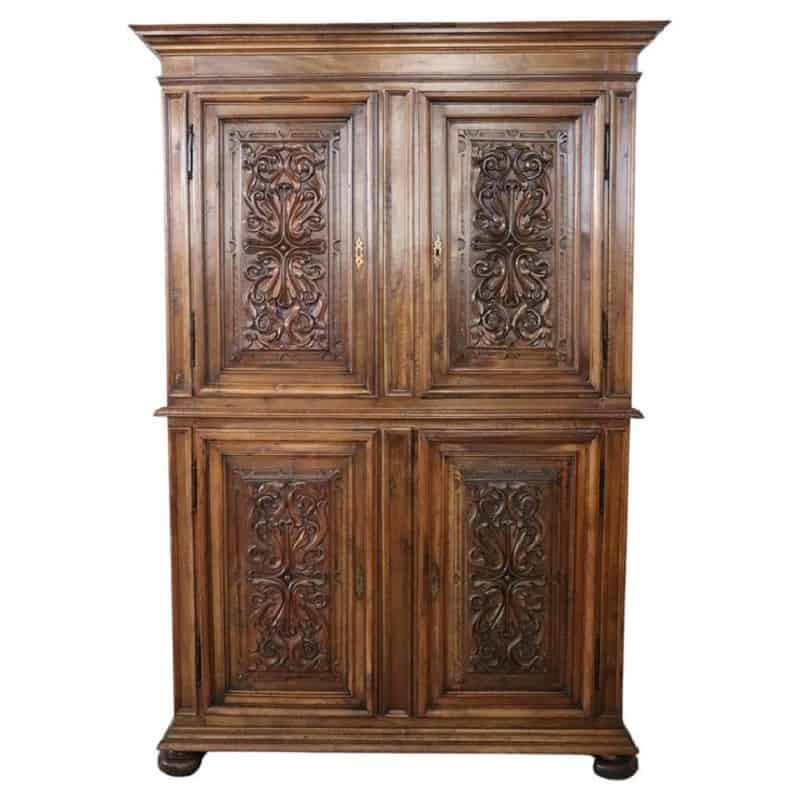
No Need for Modern Furniture: Antiques as Valuable Investments
Moreover, these pieces often retain or appreciate in value, making them not only a sustainable choice but also a wise investment. By choosing antique and vintage furniture, you bring a touch of sophistication and value into your home that transcends passing trends.
Imagine having an important antique solid cherry wood “Fratino” Table with Lyre Legs from the early 17th century gracing your dining area or serving as a magnificent desk. This exquisite table not only adds an air of sophistication to your space but also comes with a beautiful antique patina, showcasing the signs of centuries gone by. It tells a story, connecting you to the past, and embodies sustainability by standing the test of time.
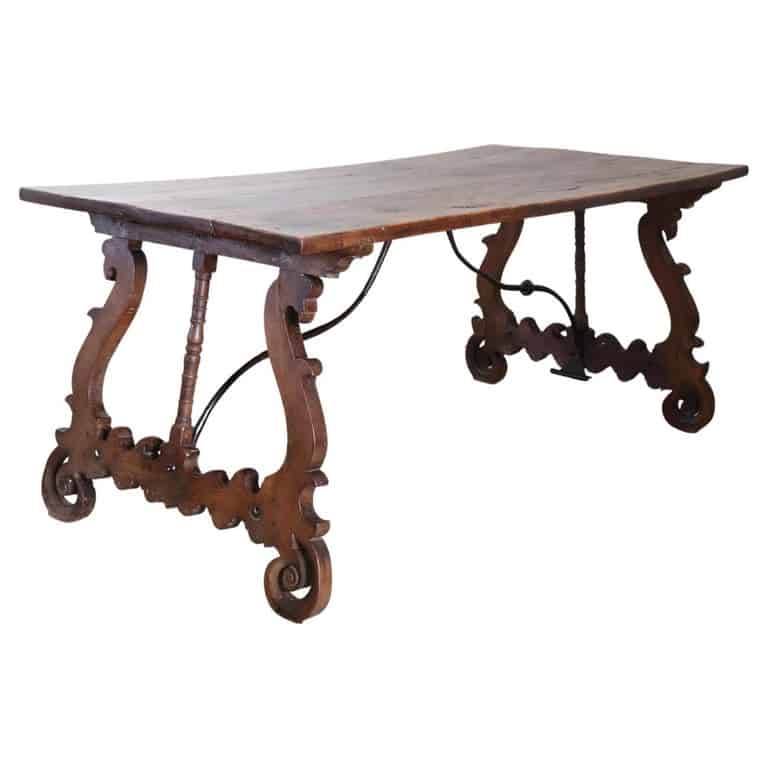
The Historical Turquoise Antique Chinese Cabinet
These timeless items carry a sense of history and authenticity, adding character and charm to any space. Secondhand furniture can include elevated, museum-worthy items. Delight in the vibrant colors and historical significance of this handcrafted Turquoise Antique Chinese Cabinet from Gansu Province. Lovingly restored using traditional techniques, this 100-year-old cabinet features stunning hand-painted details that capture the essence of Chinese artistry.

Its vibrant turquoise paint, underlay hints, and lacquer finish make it an exceptional piece of Chinese history. By choosing this antique cabinet, you become a custodian of cultural heritage and contribute to sustainable restoration practices.
Environmental Benefits of Antique Furniture
Reducing our carbon footprint is an essential consideration in today’s world. When you choose antique furniture, you contribute to a more sustainable future. The remarkable aspect of antique furniture is its ability to reuse valuable resources, especially wood. By investing in antique pieces, you prevent the consumption of new materials and minimize the demand for mass-produced, low-quality items.
Let’s continue on exploring with some remarkable pieces that embody both environmental responsibility and aesthetic allure.
Antique Biedermeier’s Timeless Simplicity and Beauty
Travel back in time with this original Antique Biedermeier Table from around 1830, originating from Southern Germany. With its walnut veneer and elegant design, it stands on a hexagonal column resting on a trefoil base. This timeless piece seamlessly blends with modern interiors, showcasing the adaptability and enduring charm of antique furniture.
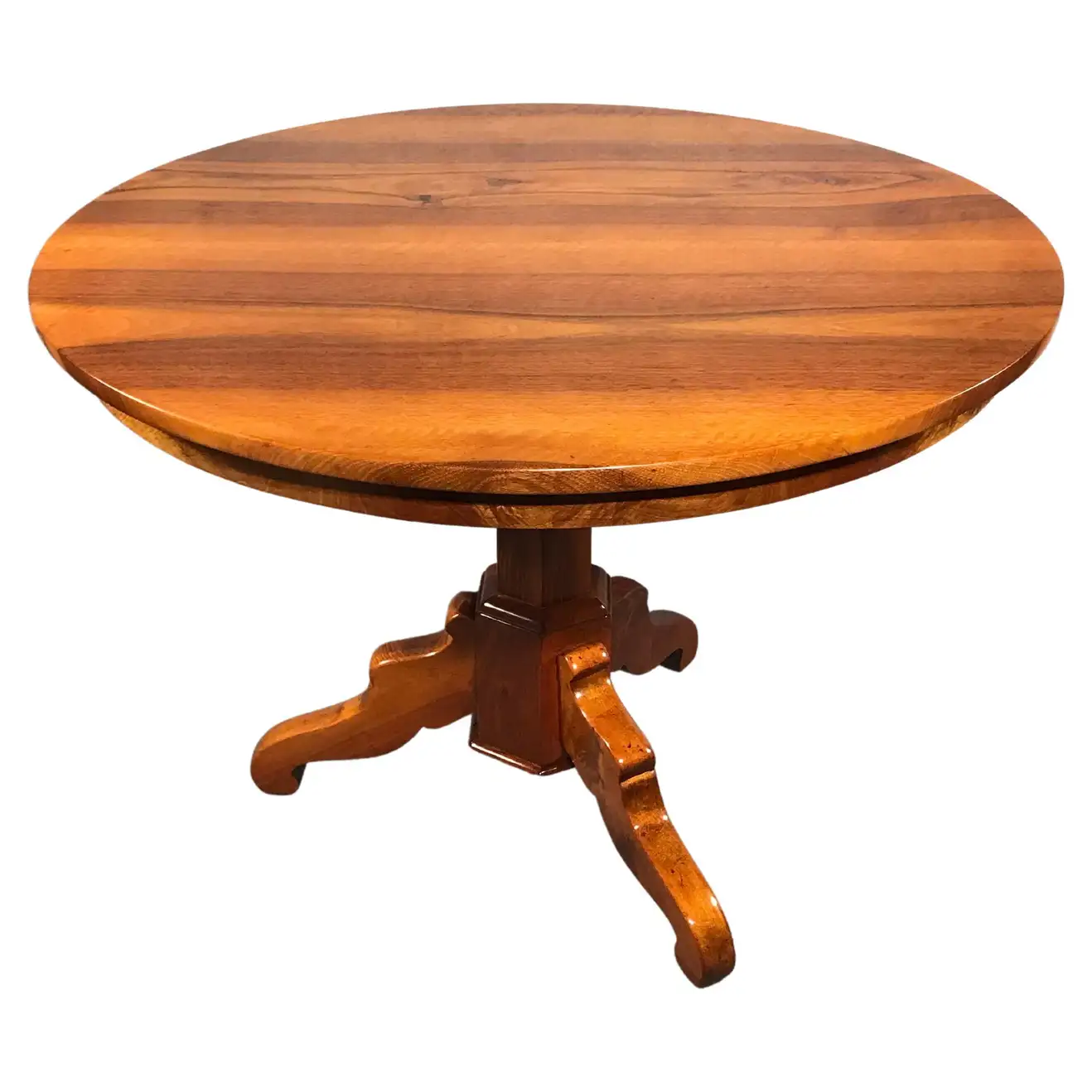
The elegance of the past shines with this rare Antique Biedermeier Chair from Southern Germany dating back to 1820. The chair’s cherry wood, veneer, and solid construction make it both visually stunning and comfortable. Its curved back board showcases a beautiful and original ink wash painting, adding a touch of artistry to your living space. Each time you sit on this chair, you become part of the enduring legacy of Biedermeier furniture.
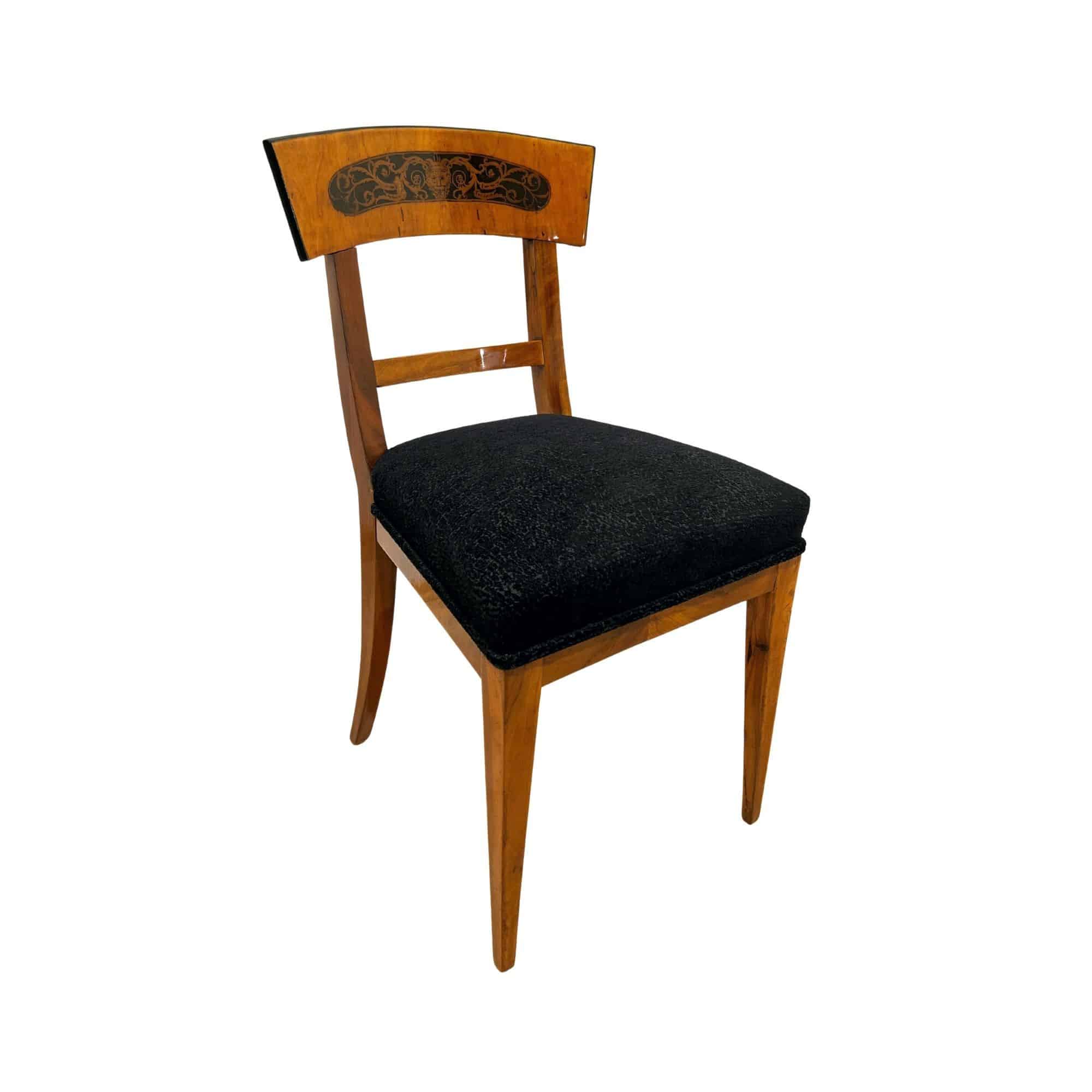
19th Century Furniture: Preserving History and Reducing Waste
For those seeking a touch of sophistication in any room, the 19th Century Louis Philippe Walnut Antique Side Table is a true gem. Featuring refined turned decorations on its legs and an internal drawer divided into small compartments, this small table effortlessly adds character to your living room, hallway, or bedroom. Its impeccable condition and timeless allure make it a statement piece that stands out in any setting.
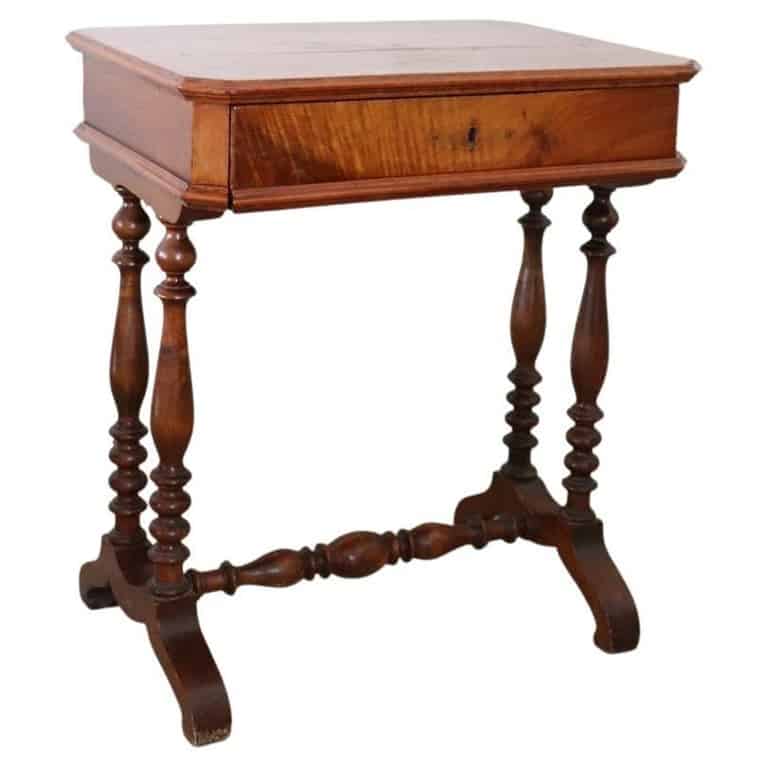
By purchasing sustainable furniture and avoiding big box stores, you’ve avoided making a huge negative environmental impact. Additionally, you’re avoiding furniture waste when you decorate your home with quality items that will survive generations of use.
Neoclassical-Era Antique Pieces
Transport yourself to the late 18th century with this elegant antique Neoclassical Chest of Drawers from Germany. With its variations of walnut veneer grains and mirrored walnut root veneer on the top, this chest of drawers combines functionality and timeless beauty. The delicate ribbon inlays framing the central walnut root veneer panels add an exquisite touch of craftsmanship. Owning this sophisticated dresser is like owning a piece of history.
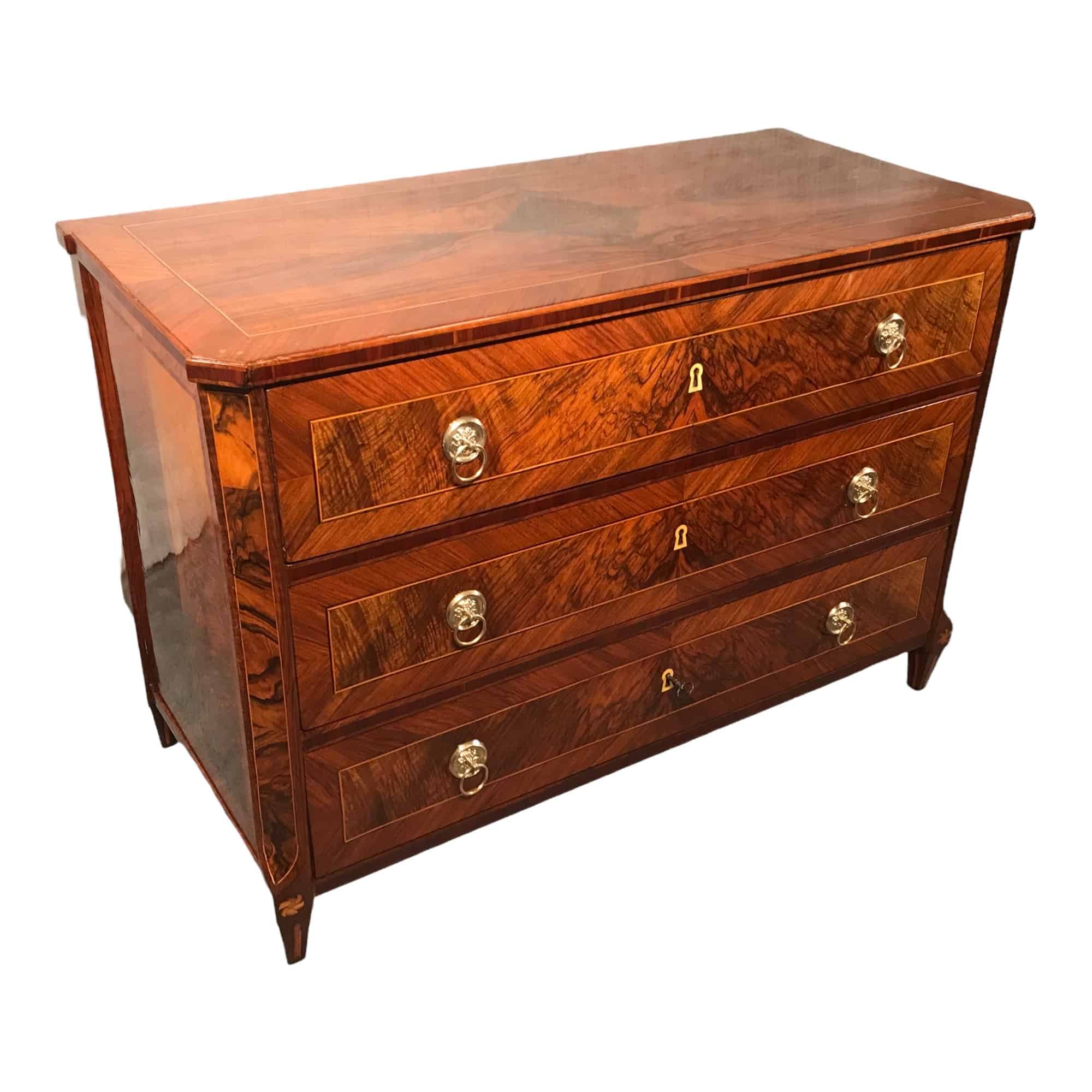
When you invest in antique furniture, you’re not just acquiring beautiful pieces. You’re making a conscious choice to support sustainability and environmental preservation. By opting for these well-preserved antique pieces, you prevent waste. Antique furniture celebrates the value of craftsmanship, promotes recycling and repurposing, and helps us reconnect with our roots.
Celebrating the Past to Protect the Planet for Future Generations
Sustainability and style can go hand in hand, and antique furniture proves this beautifully. By embracing sustainability and antiques, you can reduce your carbon footprint and beautify your space. Each antique piece carries a rich history, embodying the craftsmanship of the past while standing as a testament to sustainability.
If you’re captivated by the allure of antique furniture and seek quality pieces that are not only visually stunning but also environmentally conscious, we invite you to explore the exceptional selection available at Styylish.com. Every piece offers an opportunity to bring sustainable elegance into your home and inspire conversations about preserving our planet’s resources. Buy antique furniture and grace your home with timeless charm.

